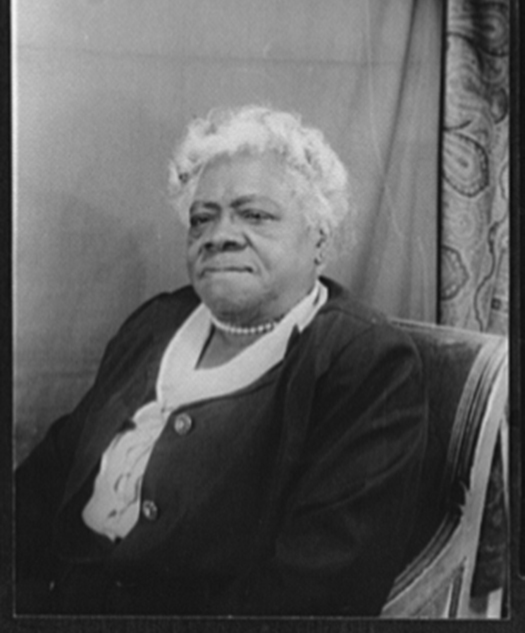We remember educator and political leader Mary McLeod Bethune who passed away this week in 1955. She died at the age of eighty. Mary McLeod Bethune was born in Mayesville, South Carolina, in 1875, one of the last of Samuel and Patsy McLeod’s seventeen children.
With the help of her family, Mary McLeod Bethune was able to attend the local mission school. Then, with help from a patron, she attended Scotia Seminary in North Carolina and also Moody Bible Institute in Chicago. Bethune taught for almost a decade before opening her own school. It was called the Daytona Educational and Industrial School for Negro Girls in Daytona Beach, Florida, but it is now known as Bethune-Cookman College.
Mary McLeod Bethune’s efforts on behalf of the school helped lead her to greater opportunities. She served as vice president of the National Urban League, president of the National Association of Colored Women, and as an advisor on minority issues to both Presidents Coolidge and Hoover.
In 1936, President Franklin D. Roosevelt made Bethune director of the Division of Negro Affairs, National Youth Administration, then the highest government position ever held by an African American woman. She also served the Roosevelt administration as a special adviser on minority affairs. In addition, she was appointed a special assistant to the secretary of war to oversee the selection of candidates for the Women’s Army Corps.
To read her reflection on her life, check out Dr. Bethune’s Last Will & Testament. Here, Mary McLeod Bethune lays out her legacy. Learn more about Bethune from this profile by the Library of Congress.
Bethune was a champion of education, civil rights, and economic empowerment; we’re all fortunate that her legacy lives on!
Curious about the NCTE and Library of Congress connection? Through a grant announced by NCTE Executive Director Emily Kirkpatrick, NCTE is engaged in ongoing work with the Library of Congress, and “will connect the ELA community with the Library of Congress to expand the use of primary sources in teaching.” Stay tuned for more throughout the year!

